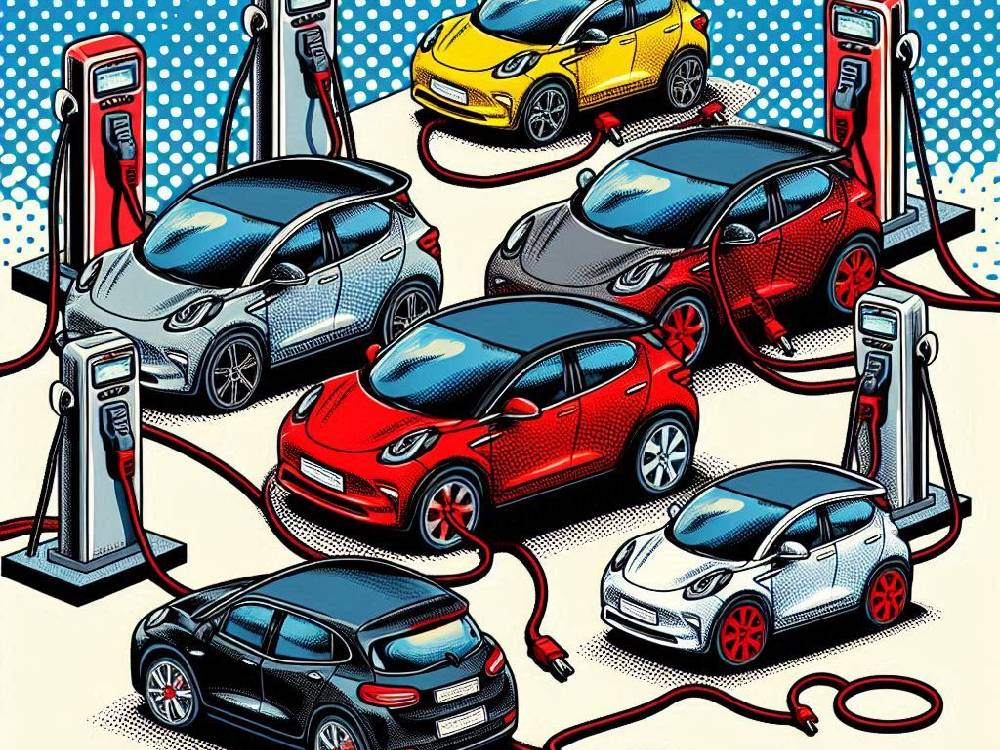Introduction
Many prospective EV owners may not expect the steep cost of Electric Car Insurance.
Drivers are increasingly drawn to their environmental benefits and lower running costs.
But there’s a problem.
Electric cars are gaining traction in the UK.
In this article, we’ll explore why Electric Car Insurance premiums are rising at such an alarming rate.
We’ll look at the factors driving these higher costs.
And we’ll show you how much Electric Car Insurance premiums have surged in recent years.
Finally, we’ll cover what you can do to manage those costs.
Why Is Electric Car Insurance So Expensive?
The growing popularity of electric vehicles is no secret.
As the UK works hard to reduce carbon emissions, more drivers are switching from petrol and diesel to electric cars.
But here’s the catch:
Electric car insurance is significantly more expensive.
Why is that?
It turns out, several factors contribute to these higher costs.
First of all, electric cars themselves tend to be pricier than their petrol or diesel counterparts.
And when a car is worth more, insurance premiums are higher.
Insurers consider the value of the vehicle when determining the risk.
So, the more expensive the vehicle, the higher the payout in case of an accident.
That’s not all.
Electric cars require more specialised skills and tools for repairs.
The Institute of the Motor Industry (IMI) predicts a shortage of 16,000 EV-qualified mechanics by 2032.
This lack of skilled technicians is driving up the cost of repairs.
And these increased repair costs are passed directly to the driver in the form of higher premiums.
In fact, repair times for electric vehicles are 14% longer than those for traditional petrol and diesel cars.
So, when repairs take longer, the overall cost to insurers goes up.
Given these complexities, it’s no wonder insuring an electric vehicle can be daunting for many UK drivers.
How Much Has Electric Car Insurance Increased by?
The numbers are eye-opening.
While the average insurance premium for all vehicles has risen by 58% in the last year, electric vehicles have seen an even more dramatic spike.
How much?
Premiums for EVs have surged by 72% over the same period.
That’s more than double the rise seen for petrol and diesel cars, which only increased by 29%.
What’s driving this sharp increase?
For one, the cost of repairs is higher for electric vehicles.
Claims for electric cars are 25.5% more expensive than those for traditional cars.
This is partly because electric vehicles have more expensive components and require specialised repairs.
But there’s more.
Take Tesla, for example.
Tesla repair costs have jumped by a staggering 93% over the last year.
On top of that, there’s been a 25% increase in repair downtime for these vehicles.
Because Tesla holds a large share of the UK EV market, many insurers base their calculations on Tesla data.
As a result, even electric cars that aren’t Teslas are seeing their premiums rise.
For more on this, check out our guide to electric vehicle insurance.
Why Has Electric Car Insurance Increased Over The Last Year?
Across the board, insurance prices have been climbing.
But electric vehicles have been hit particularly hard.
Why is that?
The biggest reason is the rising cost of repairs.
Electric vehicles are more complicated and more expensive to fix than their petrol or diesel counterparts.
With more drivers adopting EVs, the demand for qualified repair technicians is outstripping supply.
And when there aren’t enough skilled professionals, repair times and costs go up.
But that’s not the only factor.
Materials, labour, and even used cars have all become more expensive in the past year.
This inflation has pushed up claims costs for insurers.
On top of that, personal injury claims from serious accidents have become more frequent and costly.
What does this mean for EV owners?
Simply put, insurers are passing these increased costs onto their customers.
That’s why premiums for electric vehicles have risen so sharply in the last year.
Save on insurance costs here.
The Fire Risk And Safety Concerns With Electric Cars
There’s another issue many EV owners are concerned about:
The risk of fire.
While rare, electric car fires tend to be more intense and harder to extinguish than fires in traditional cars.
This is due to the lithium-ion batteries used in EVs.
Although the chances of an EV fire are low, when they do happen, they make headlines.
This media attention can create the perception that EVs are more dangerous than they actually are.
However, most insurers don’t view electric car fires as a widespread issue.
That said, the cost of replacing an electric vehicle is much higher, even for minor incidents.
And higher payouts mean higher premiums.
When Will Electric Car Insurance Premiums Come Down?
Many UK drivers are asking the same question:
When will electric car insurance premiums start to decrease?
The unfortunate truth is that premiums are unlikely to drop in the short term.
There are several reasons for this.
One of the main factors is the cost of EV batteries.
Batteries make up about two-thirds of an electric vehicle’s total value.
If the battery is damaged, it often leads to the car being considered a total loss.
This makes even small accidents potentially expensive for insurers.
There’s also the shortage of skilled mechanics.
As mentioned earlier, the Institute of the Motor Industry has predicted a shortage of around 16,000 EV-qualified mechanics by 2032.
Without enough trained professionals, repairs remain costly and time-consuming.
But all hope is not lost.
As the electric vehicle market matures, we could see a decrease in repair costs.
More mechanics are being trained, and manufacturers are finding ways to lower production costs.
There’s also the potential for telematics data to play a role in reducing premiums.
Telematics technology in EVs can monitor driving behaviour, allowing insurers to personalise premiums based on how safely you drive.
If you’re a safe driver, this could lead to lower insurance costs in the future.
However, concerns over data privacy remain a challenge for widespread adoption of telematics.
For more ways to save on electric car insurance, check out our money-saving tips.
Conclusion
Electric vehicles offer many benefits, from environmental sustainability to lower running costs.
But there’s no getting around it—insuring an electric car in the UK is currently more expensive than insuring traditional vehicles.
The higher costs come down to several factors, including repair expenses, the value of EVs, and the shortage of skilled technicians.
While it’s unlikely that premiums will drop dramatically in the near future, there are steps drivers can take to manage costs.
As the market evolves and technology advances, we may see electric car insurance become more affordable.
For more insights, check out our related posts on electric vehicle insurance and why insurance costs are so high.






